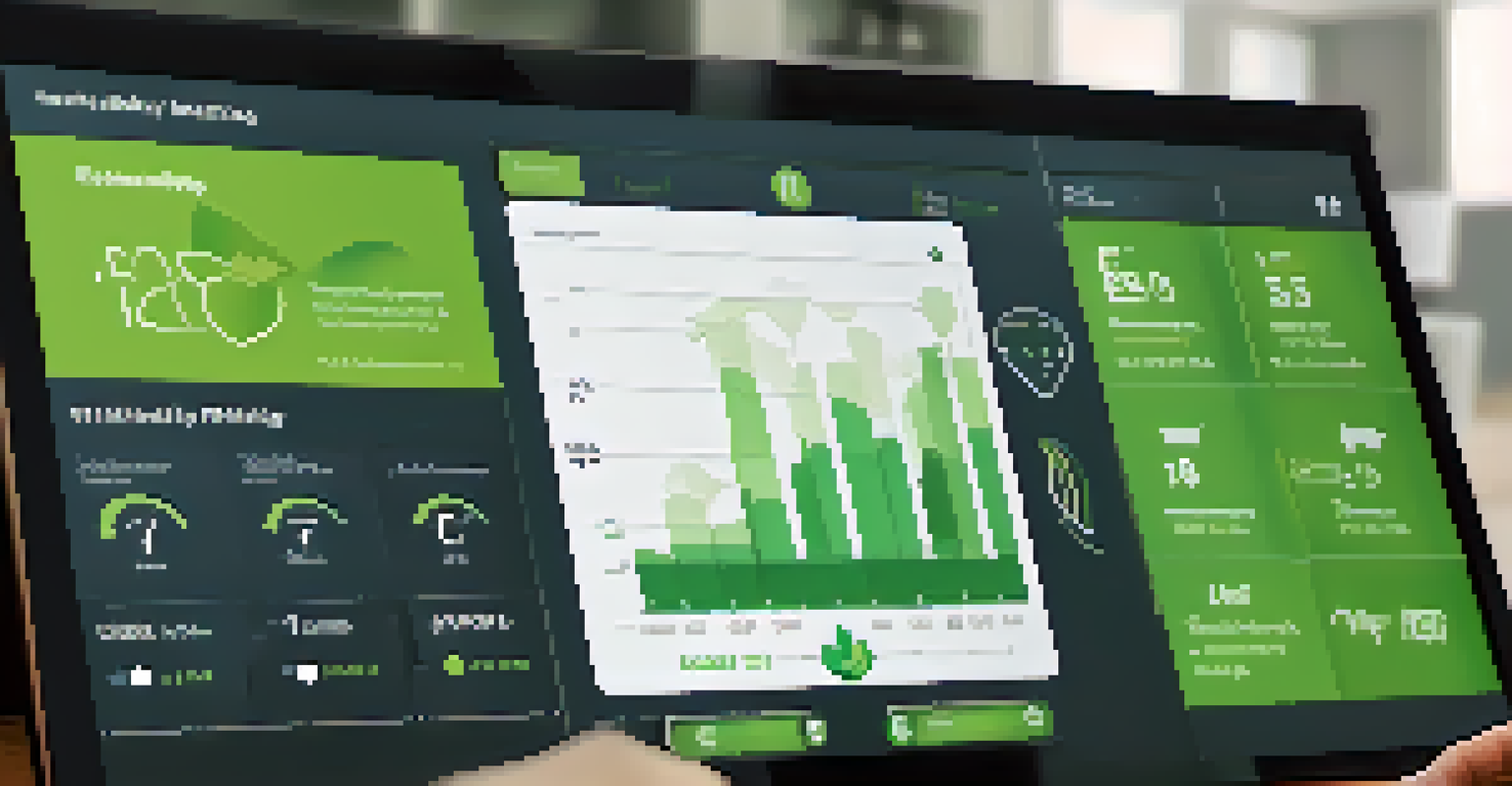The Future of Work: Sustainability in Business Culture

Understanding the Concept of Sustainability in Business
Sustainability in business refers to practices that meet current needs without compromising future generations. This involves a balance between economic growth, environmental stewardship, and social equity. It's not just about 'going green'; it’s about creating a holistic approach that benefits all stakeholders involved.
Sustainability is not just a goal; it's a way of thinking that should permeate every aspect of business.
Think of sustainability as a three-legged stool: economic, environmental, and social factors all need to be balanced for a stable future. When businesses adopt sustainable practices, they not only contribute positively to the planet but also enhance their reputation and bottom line. This shift is crucial as consumers increasingly prefer brands that prioritize sustainable values.
Ultimately, sustainability in business is about long-term thinking and resilience. Companies that embrace this concept are better positioned to navigate the complexities of today's market. They create a culture where employees feel good about their contributions, knowing they are part of something bigger.
The Role of Technology in Promoting Sustainability
Technology plays a pivotal role in advancing sustainability within businesses. From cloud computing to AI, innovations help organizations optimize their operations and reduce waste. For example, smart sensors can monitor energy use in real-time, allowing companies to adjust their practices and save on costs.

Moreover, technology enables businesses to track their sustainability goals effectively. Tools for measuring carbon footprints or resource consumption provide valuable insights that inform better decision-making. This data-driven approach not only drives efficiency but also showcases a company's commitment to sustainability to its stakeholders.
Sustainability Balances Business Needs
Sustainability in business integrates economic, environmental, and social factors to ensure long-term success and resilience.
As we look to the future, the integration of technology and sustainability will become increasingly important. Companies that leverage tech solutions will not only enhance their operational efficiency but also create a competitive edge in a marketplace that values environmental responsibility.
Cultivating a Sustainable Business Culture
Creating a sustainable business culture involves embedding sustainable practices into the company's core values. This means encouraging employees at all levels to think about sustainability in their daily tasks. For instance, simple actions like reducing paper waste or promoting remote work can make a significant impact.
The greatest threat to our planet is the belief that someone else will save it.
Moreover, leadership plays a crucial role in shaping this culture. When leaders prioritize sustainability, it sets a powerful example for employees. Sharing stories of successful sustainability initiatives can inspire teams and foster a sense of ownership over the company’s environmental impact.
Ultimately, a sustainable culture is one where everyone feels empowered to contribute. By fostering collaboration and open dialogue about sustainability, businesses can harness collective creativity to solve complex challenges and drive meaningful change.
Employee Engagement and Sustainability Initiatives
Engaging employees in sustainability initiatives is essential for fostering a motivated workforce. When employees feel their contributions matter, they are more likely to take ownership of their roles. This can be achieved through programs that encourage participation in sustainability efforts, such as company-wide recycling challenges or volunteer days.
Moreover, recognizing and rewarding sustainable practices within teams can further enhance engagement. For example, companies can implement incentive programs that celebrate departments that achieve significant sustainability milestones. This not only motivates employees but also reinforces the organization's commitment to a sustainable future.
Technology Enhances Sustainable Efforts
Innovative technologies help businesses optimize operations, track sustainability goals, and reduce waste effectively.
By creating an inclusive environment where employees feel valued for their contributions, businesses can cultivate a culture of sustainability. This collaborative approach not only benefits the company but also empowers employees to become advocates for sustainability in their personal lives.
The Benefits of Sustainable Business Practices
Sustainable business practices come with a myriad of benefits that extend beyond environmental impact. Companies that prioritize sustainability often experience cost savings through improved efficiency and reduced waste. For example, investing in energy-efficient technology can lower utility bills while also decreasing carbon footprints.
Additionally, businesses that embrace sustainability are more likely to attract and retain top talent. Many employees today seek workplaces that align with their values, particularly regarding environmental responsibility. A strong sustainability commitment can position a company as an employer of choice in a competitive job market.
Furthermore, sustainable practices can enhance brand loyalty among consumers. As more people become environmentally conscious, they gravitate towards brands that demonstrate a commitment to sustainability. This not only boosts sales but also strengthens the company's reputation in the long run.
Navigating Challenges in Implementing Sustainability
While the benefits of sustainability are clear, implementing these practices can pose challenges for businesses. Resistance to change is a common hurdle, as employees may be accustomed to traditional methods. Overcoming this requires effective communication that emphasizes the long-term advantages of sustainability, both for the company and the planet.
Additionally, resource limitations can be a barrier, particularly for small businesses. However, sustainability doesn't have to be an all-or-nothing approach. Companies can start with small, manageable initiatives, gradually expanding their efforts as they see results. Every little step counts in the journey towards a more sustainable business.
Employee Engagement Drives Change
Involving employees in sustainability initiatives fosters motivation and ownership, leading to a stronger culture of environmental responsibility.
Ultimately, navigating these challenges requires a commitment to continuous improvement and learning. By being open to feedback and adapting strategies as necessary, businesses can successfully integrate sustainability into their core operations.
The Future of Work: Sustainability as a Core Value
As we look to the future, sustainability is poised to become a central tenet of work culture. Companies that recognize this trend and adapt accordingly will thrive in the evolving marketplace. Sustainability is not just a buzzword; it’s a critical aspect of business strategy that can drive innovation and growth.
Incorporating sustainability into business models also opens doors to new opportunities. For instance, the rise of green technologies and services creates avenues for companies to expand their offerings while contributing positively to the environment. This aligns well with the growing consumer demand for sustainable products and services.

In summary, the future of work is undeniably linked to sustainability. By prioritizing sustainable practices, businesses can create a meaningful impact while positioning themselves as leaders in their industries. The journey may be challenging, but the rewards—both for the planet and the organization—are well worth the effort.